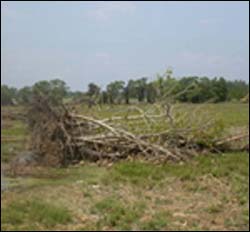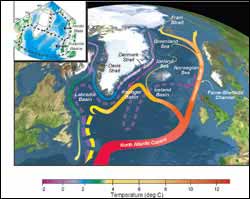NASA hurricane researchers are deploying to Costa Rica next month to investigate the birthplace of eastern Pacific tropical cyclones. They will be searching for clues that could lead to a greater understanding and better predictability of one of the world’s most significant weather events – the hurricane.
As scientists and coastal residents brace for another potentially challenging hurricane season, NASA is launching the Tropical Cloud Systems and Processes (TCSP) mission. T

Accounts of the tsunami that killed over a quarter of a million people in Southeast Asia on the 26th of December, 2004, slowly disappear from the media, but the event is nevertheless heavily burned into the memories of those who are directly involved. In the aftermath of the disaster, academics and politicians alike are trying to investigate how the number of casualties could have been reduced and, more important, how such severe damage can be avoided if a tsunami ever strikes again. In an essa
Cutting edge research will be on display at The Royal Academy of Engineering’s annual Summer Soirée at the National Oceanography Centre, Southampton (NOCS), on Monday 27 June, hosted by the University of Southampton.
Highlights include:
Ocean floor energy: the University of Southampton and NOCS are at the forefront of research on methane hydrates, ice-like deposits occurring in deep ocean sediments. These show promise as a major source of energy but could also trigger a
The discovery of green sulfur bacteria living near hydrothermal vents has major implications for where photosynthesis happens and where life may reside
A team of researchers, including a photosynthesis expert from Arizona State University, has found evidence of photosynthesis taking place deep within the Pacific Ocean. The team found a bacterium that is the first photosynthetic organism that doesn’t live off sunlight but from the dim light coming from hydrothermal vents nearly
Cape Cod Marine Life Lures Biomedical Researchers to the Marine Biological Laboratory
It’s annual migration time on Cape Cod again, the time of year when Woods Hole squid arrive by the tens of thousands. It’s a sign of spring to the fishermen who make a living in this important New England fishery. But here at the Marine Biological Laboratory (MBL), it triggers an influx of hundreds of scientists and students from around the world, who return here faithfully every summer to study

Continued Freshening of the North Atlantic Could Slow the Conveyor in the 21st Century
Large regions of the North Atlantic Ocean have been growing fresher since the late 1960s as melting glaciers and increased precipitation, both associated with greenhouse warming, have enhanced continental runoff into the Arctic and sub-Arctic seas. Over the same time period, salinity records show that large pulses of extra sea ice and fresh water from the Arctic have flowed into the North Atl